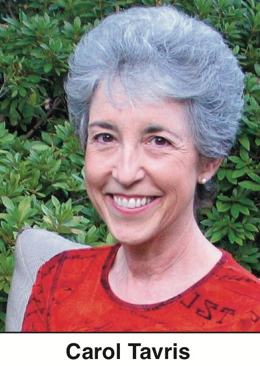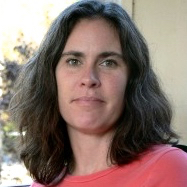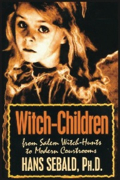Rascals case in brief
In the beginning, in 1989, more than 90 children at the Little Rascals Day Care Center in Edenton, North Carolina, accused a total of 20 adults with 429 instances of sexual abuse over a three-year period. It may have all begun with one parent’s complaint about punishment given her child.
Among the alleged perpetrators: the sheriff and mayor. But prosecutors would charge only Robin Byrum, Darlene Harris, Elizabeth “Betsy” Kelly, Robert “Bob” Kelly, Willard Scott Privott, Shelley Stone and Dawn Wilson – the Edenton 7.
Along with sodomy and beatings, allegations included a baby killed with a handgun, a child being hung upside down from a tree and being set on fire and countless other fantastic incidents involving spaceships, hot air balloons, pirate ships and trained sharks.
By the time prosecutors dropped the last charges in 1997, Little Rascals had become North Carolina’s longest and most costly criminal trial. Prosecutors kept defendants jailed in hopes at least one would turn against their supposed co-conspirators. Remarkably, none did. Another shameful record: Five defendants had to wait longer to face their accusers in court than anyone else in North Carolina history.
Between 1991 and 1997, Ofra Bikel produced three extraordinary episodes on the Little Rascals case for the PBS series “Frontline.” Although “Innocence Lost” did not deter prosecutors, it exposed their tactics and fostered nationwide skepticism and dismay.
With each passing year, the absurdity of the Little Rascals charges has become more obvious. But no admission of error has ever come from prosecutors, police, interviewers or parents. This site is devoted to the issues raised by this case.
On Facebook
Click for earlier Facebook posts archived on this site
Click to go to
Today’s random selection from the Little Rascals Day Care archives….
Click for earlier Facebook posts archived on this site
Click to go to
Today’s random selection from the Little Rascals Day Care archives….
Three ‘built-in biases’ with tragic consequences
 Dec. 2, 2013
Dec. 2, 2013
“Of the many built-in biases in human thought, three have perhaps the greatest consequences for our own history and that of nations: the belief that we see things as they really are, rather than as we wish them to be; the belief that we are better, kinder, smarter and more ethical than average; and the confirmation bias, which sees to it that we notice, remember, and accept information that confirms our beliefs – and overlook, forget and discount information that disconfirms our beliefs.”
– From “History Gets in Bed With Psychology, and It’s a Happy Match”
by Carol Tavris at History News Network (Nov. 11, 2013)
Once again Dr. Tavris nails it. The prosecutors in Little Rascals and the other day-care ritual-abuse cases fit her profile as exactly as if they had been completing a checklist. Yes, it must have been difficult to resist those “built-in biases” – but it wasn’t impossible.
The chilling body count of ‘personality-driven’ prosecutors

kristincollinswriting.com
Kristin Collins
July 11, 2016
“This week Harvard Law School’s Fair Punishment Project issued a report detailing the legacies of five of the nation’s deadliest prosecutors, and (Joe Freeman) Britt was among them. The report highlights what it calls ‘personality-driven capital sentencing,’ which leads overzealous prosecutors with a flair for courtroom theatrics and a desire for personal fame to pursue death sentences at disproportionate rates….
“This personality-driven system means that a death sentence often says less about the severity of the defendant’s crime, than it does about the prosecutor’s enthusiasm and courtroom skills. Personality-driven prosecutions can also lead to wrongful convictions, when prosecutors making winning cases a higher priority than seeking justice….
“Britt often cut corners to win. Appellate courts found that Britt committed misconduct in 14 of his capital cases, the new report shows. His offenses included hiding evidence that might have proven defendants innocent and making inflammatory and improper statements to jurors….
“When they were exonerated by incontrovertible DNA evidence, Britt did not even have the heart to admit his mistake. Instead, he continued to loudly proclaim their guilt….”
– From “NC ‘deadliest prosecutor’ valued winning over justice, new report shows” by Kristin Collins at NC Coalition for Alternatives to the Death Penalty (June 30)
I shudder to speculate what might have happened in Edenton had North Carolina sanctioned capital punishment for child sex abuse. The Little Rascals prosecutors, most strikingly Nancy Lamb, bore many of the “personality-driven” characteristics seen in a Joe Freeman Britt:
- “A flair for courtroom theatrics and a desire for personal fame”? Check.
- “Hiding evidence that might have proven defendants innocent”? Check.
- “Inflammatory and improper statements to jurors”? Check.
- “Continued to loudly proclaim their guilt”? Check…..
![]()
‘Started as a rumor – not about molestation, not at first….’
June 24, 2013
“(I) followed the Little Rascals case closely in the Norfolk and other papers…. Moved by (its) strangeness and patent senselessness, as well as by reports nationwide at the time of what came to be tagged ‘false memory syndrome,’ I wrote and later published a short story inspired by the spectacular miscarriage of justice…. The thrust of my story was popular hysteria and jaundiced, ambitious therapists together with a grievous breakdown of the judicial system….
“I believe that behind the recovered memory and child abuse therapeutic notions of that time, so destructive of the lives of the Edenton Seven and many others, lies Freud’s almost immeasurable popular impact on our now so heavily sexualized culture – though the easy lure of the witch hunt seems to have been all too contagious in Edenton’s fearful, credulous and manipulable parents as well.”
– Historian and writer John L. Romjue of Yorktown, Va., responding to “Remembering the shame of the Little Rascals Day Care case” at North Carolina Miscellany (Oct. 24, 2011)
Although “Witches of Devon,” the title story in Mr. Romjue’s 2002 collection, veers dramatically from the course of the Little Rascals case, it does indeed capture the essence: “It had started as a rumor – and not about molestation, not at first. There had been an ‘assault’ incident at Happy Children (day care). Joanne Jamison had spanked a little girl’s bottom and not suitably apologized to the mother….”
National borders were no barrier to panic
 Oct. 15, 2012
Oct. 15, 2012
“German television and the press (especially the tabloids) dwelled on McMartin with almost the same intensity as did the U.S. media….The impact was predictable: an immediate, steep increase in the number of abuse claims by children and their parents….
“In the city of Muenster…. children (at a Montessori school) accused persons totally removed from the setting, including taxi drivers, and talked about coffins, mortuaries, trap doors, chaining and secret subterranean vaults. The panic spread to other schools.
“Finally, the (Montessori) investigation, which lasted from 1990 to 1993, resulted in dismissal for lack of evidence. A key role was played by a level-headed psychologist who submitted an analysis of the children and their parents forming a ‘group mind’ that had evolved through mutually reinforcing suggestion.
“A warning for the modern world: When analyzing children’s allegations, we also must analyze the role of the modern mass media, not only within national boundaries….”
– From “Witch-Children: From Salem Witch-Hunts to Modern Courtrooms” by Hans Sebald (1995)











0 CommentsComment on Facebook